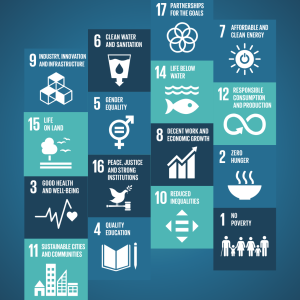Indikatoren in dieser Dimension analysieren, inwieweit Migrantinnen und Migranten hinsichtlich des Zugangs zu grundlegenden sozialen Diensten wie Gesundheit, Bildung und soziale Sicherheit den gleichen Status wie Bürgerinnen und Bürger haben. Es beschreibt die Rechte von Migrantinnen und Migranten auf Familienzusammenführung, Arbeit, Aufenthalt und Staatsbürgerschaft. Die Ratifizierung der wichtigsten internationalen Konventionen fällt ebenfalls in diesen Bereich.main.
Indikatoren in dieser Dimension bewerten die institutionellen, rechtlichen und regulatorischen Rahmenbedingungen der Länder im Zusammenhang mit Migrationspolitik. Dimension 2 beinhaltet auch das Vorhandensein von nationalen Migrationsstrategien, die mit Entwicklungspolitik und -ansätzen im Einklang stehen, sowie die institutionelle Transparenz und Kohärenz in Bezug auf Migrationsmanagement. In diesem Bereich wird auch untersucht, inwieweit Regierungen Migrationsdaten erheben und verwenden.
Diese Dimension konzentriert sich auf die Bemühungen von Ländern, in migrationsbezogenen Fragen mit anderen Staaten und einschlägigen nichstaatlichen Akteuren, einschließlich Organisationen der Zivilgesellschaft und des Privatsektors, zusammenzuarbeiten. Kooperation kann zu Verbesserungen der Regierungsführung führen, indem Standards angeglichen und angehoben, der Dialog intensiviert und Strukturen der Bewältigung von Herausforderungen geschaffen werden.
Diese Dimension umfasst Indikatoren für die Politik der Länder zur Steuerung des sozioökonomischen Wohlergehens von Migrantinnen und Migranten, z.B. die Anerkennung der Bildungs- und Berufsqualifikationen von Migrantinnen und Migranten, Bestimmungen zur Regelung der Studentenmigration und das Bestehen bilateraler Arbeitsabkommen zwischen Ländern. Die Indikatoren konzentrieren sich gleichermaßen auf Maßnahmen und Strategien im Zusammenhang mit dem Engagement der Diasporamitglieder und den grenzüberschreitenden Geldtransfers von Migrantinnen und Migranten
Diese Dimension befasst sich mit der Art und dem Grad der Bereitschaft von Ländern, wenn sie mit Mobilitätsdimensionen von Krisen konfrontiert sind, die entweder mit Katastrophen, der Umwelt und/oder Konflikten zusammenhängen. Die Fragen werden verwendet, um die Prozesse für Staatsangehörige und Ausländer sowohl während als auch Katastrophen zu ermitteln, einschließlich der Frage, ob humanitäre Hilfe für Migrantinnen und Migranten genauso verfügbar ist wir für Bürgerinnen und Bürger.
Diese Dimension analysiert den Ansatz der Länder zum Migrationsmanagement bezüglich Grenzkontroll- und Grenzschutzmaßnahmen, Zulassungsvoraussetzungen für Migranten, Vorbereitung und Flexibilität bei erheblichen und unerwarteten Wanderungsbewegungen sowie die Bekämpfung des Menschenhandels und des Menschenschmuggels von Migrantinnen und Migranten. Es werden auch die Bemühungen und Anreize zur Unterstützung der Integration der zurückkehrenden Staatsbürgerinnen und -burger bewertet.
This country Profile describes examples of well-developed areas of the Republic of Côte d’Ivoire’s (hereafter referred to as Côte d’Ivoire) migration governance structures and areas with potential for further development, as evaluated through the six domains of the Migration Governance Indicators (MGI). These address migrants’ rights, a “whole-of-government” approach, partnerships, socioeconomic well-being of migrants, the mobility dimensions of crises, and safe and orderly migration.
Click the icons on the wheel to explore the key findings.
The Migration Governance Indicators (MGI) initiative is a policy-benchmarking programme led by the International Organization for Migration (IOM) and implemented with research and analysis from the Economist Intelligence Unit. Funding is provided by IOM Member States.
Migration Governance: Examples of well-developed areas:
- Migrants residing in Côte d’Ivoire and contributing to its Universal Health Coverage (Couverture Maladie Universelle) are entitled to basic health coverage on the same conditions as nationals.
- Côte d’Ivoire allows unrestricted access to independent economic activity or paid work for all Economic Community of West African States (ECOWAS) nationals.
- School heads are required to enroll all children referred to them, regardless of the nationality or status.
Areas with potential for further development:
- Regarding tertiary education, tuition fees for non-ECOWAS nationals are often higher than for nationals.
Migration Governance: Examples of well-developed areas:
- Management of migration issues in the country is guided by a migration governance framework, under the authority of the Prime Minister’s Cabinet Director.
- The National Population Policy (Politique Nationale de Population) helps maximize the benefits of migration for sustainable development.
- The collection of statistical data on migration in Côte d’Ivoire is carried out by the National Institute of Statistics (Institut National de la Statistique) and is disaggregated, by sex, age and education level.
Areas with potential for further development:
- Migration management responsibilities are shared between different ministries and public entities with no formal inter-institutional coordination mechanism in place.
- Statistical data on migration is sparsely available despite its prevalence in the country.
Migration Governance: Examples of well-developed areas:
- Côte d’Ivoire regularly participates in Regional Consultative Processes led by the Economic Community of West African States.
- Côte d’Ivoire has concluded several bilateral agreements on free movement and labour mobility.
- The government of Côte d’Ivoire partners with the private sector for the production of passports and the development and implementation of the e-visa system.
Areas with potential for further development:
- Engagement with non-governmental entities on migration issues is informal.
Migration Governance: Examples of well-developed areas:
- The Directorate of Employment and Trades Observatory with technical support from the National Institute of Statistics collects labour market data disaggregated by sex, age and migration status
- National and international degrees are recognized through the Commission for the Recognition and Equivalence of National and International Post-Secondary Degrees.
Areas with potential for further development:
- Foreign nationals on a student visa are not allowed to work.
- There are no regular studies on the impact of migration on labour market demands.
Migration Governance: Examples of well-developed areas:
- The Civil Security Response Organization Plan includes provisions on the management of movements or displacements in the event of a natural disaster.
- The "Une seule santé" (One Health) Platform under the authority of the Prime Minister ensures effective environmental health monitoring systems, informing and protecting populations against health threats.
- Côte d’Ivoire assists its citizens living abroad in times of crisis through its diplomatic missions.
Areas with potential for further development:
- Migratory movements caused by environmental degradation and the adverse effects of climate change are not addressed in national instruments on disaster risk reduction and management.
Migration Governance: Examples of well-developed areas:
- The Ministry of African Integration and Ivorians Abroad in collaboration with concerned ministries and international partners implements measures for the reintegration of Ivorians in the country.
- Côte d’Ivoire has a law against trafficking in persons as well as a law on combating the smuggling of migrants.
- Côte d’Ivoire has concluded formal cooperation agreements with other countries to prevent and counter migrant smuggling.
Areas with potential for further development:
- Visa and border monitoring and control are not fully computerized and corresponding responsibilities are segmented between several entities.
2019 Oktober



